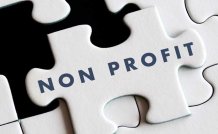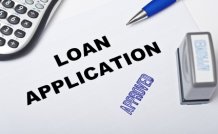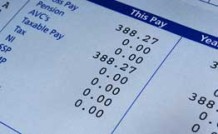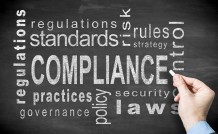Online Class: Report Writing 101

no certificate
with CEU Certificate*
-
12Lessons
-
26Exams &
Assignments -
904Students
have taken this course -
14Hours
average time -
1.4CEUs
Course Description
Introduction to Report Writing
Organizing and writing reports for business can take up a lot of valuable time and money. They are a necessary evil used to explain and/or justify expenses, events, accidents, policy changes, as well as document numerous other activities within a company. Reports can point out problems and offer solutions. They can be used to explain costs or to receive an increase in budget. In addition, when written as a proposal, they can generate new projects and income for a company by bringing in business from other sources. In short, reports are an instrument used to communicate needed information to the appropriate people within the same business or from one business to another.
That said, not everyone is a writer. Being left with the task of creating a report can seem like a punishment akin to torture. Staring at a blank screen or a blank piece of paper with no idea of how to start or --once you do start -- figuring out what needs to be included can be a nightmare all of its own.
Not to mention, if the message in the report isn't well written or appropriately targeted to the correct audience, all of the struggle to write the report becomes a waste of time and money. That's not even addressing the money that could be lost simply because the message wasn't clear or directed at the right people.
About This Course
This course is designed for business professionals who are tasked with writing reports and proposals. The goal of this course is to take the difficulty out of writing these reports and then teach how to write them efficiently and effectively.
In this course, you will learn:
-
How to organize reports to make writing them easier and less time consuming.
-
How to identify the important information that should be included in a report that will gain the readers' attention.
-
How to present the information, as well as how to be convincing and persuasive.
-
Create reports that achieve their desired goal and have the intended impact.
This course is divided into twelve lessons to ensure that each topic is covered fully and that each student has all the information that they need to learn. Although students are not required to write an actual report in order to successfully complete this course, students will be required to identify all aspects of a report, determine what information should go into different types of reports, and structure their own reports.
Each lesson in this course is followed by a lesson exercise and assignment. The lesson exercises are mandatory for all students and will determine whether or not a student has satisfactorily completed the course. Lesson assignments are optional. These will not be graded and only given as a tool that provides for a deeper learning and understanding of the material presented.
In addition, some of the lessons contain section reviews. Each section review contains three multiple choice questions that directly relate to a certain type of report. These section reviews are to help you learn how to organize and write different sections on a report. Just like the lesson exercises, these section reviews are mandatory for all students and will influence whether or not a student has satisfactorily completed the course.
Erase everything you think you already know about writing reports. Forget that you hate writing them, if you do. Forget the dread that comes with knowing how you'll struggle with it from beginning to end. If you or your company has a template that you use for reports, it's important that you cast that aside as well. Writing reports is not difficult, even if you're not a writer or have no interest in writing. In fact, writing a report without a template can be easier than writing a report with one. We're going to prove that to you in this course.
Course Motivation
Getting Started on Writing Reports
There are three things you need to know up-front before you begin to write any report. Think of these three things as the seasoning that will help give all your reports the flavor that they need. These three things are:
- The company image you need to convey
- Your image that you need to convey
- The message you need to get across
The company's image, as well as your image, will help determine the tone you need to take when writing the report. You'll be able to use the same tone for most reports you write, which means that once you understand what needs to go into the tone of your reports, writing them will become easier.
Ask yourself these three questions to help establish the tone:
-
Why are you writing the report?
-
Who are you writing the report for, and what do you need them to understand?
-
What tone should you use?
With the majority of business reports, your tone should always be:
-
Confident, but not arrogant. For example, don't write, "You must agree that I am the expert on this subject." Instead, write, "My experience with X, Y, and X have provided the insight I needed to conclude that…"
-
Courteous and sincere, not condescending or accusatory. Don't write, "You didn't do this, so that happened." Instead, write "There was an error with this, so that happened."
In addition, you should:
-
Write at the required level of difficulty. For example, if your position within your company requires extensive knowledge of technical terms, but the audience that will read the report will not be familiar with those terms, try instead to use terms they will be familiar with and won't cause confusion when they read the report.
-
Make sure to use non-discriminatory language. This means using gender-neutral job titles (salesperson instead of salesman). Avoid demeaning terms, masculine pronouns, and implying gender if it's not necessary.
-
Stress benefits. For example, avoid saying, "I will look into this matter tomorrow." Instead write, "I will have an answer for you on Friday."
-
Use subordination. "The Human Resources Department has finished reviewing employee time sheets and has concluded that tardiness will no longer be tolerated and will result in disciplinary action." Use subordination in the middle of the report where you are presenting information.
-
Use emphasis. In other words, let your words be firm. "Tardiness will no longer be tolerated," instead of, "We ask all employees to avoid being tardy from this date forward." Emphasis should be used in the beginning paragraph of the report, then at the end of the report.
The most important part of writing a report is getting your message across to your audience. The message contained in the report is what makes the report useful, interesting, and effective for the people that read it. It doesn't matter if you include all necessary information in the report. If that information isn't organized, written properly, and fails to deliver the right message to your audience, your report is useless.
Let's take, for an example, a report about why your department went over budget. You can write a report that includes all the purchases and expenses that sent your department over budget. This is the correct information, so you've included the correct information in the report. If you were writing the report for your boss, who is also in your department, this may suffice, because the message you want to give him is what caused you to go over budget. However, if this is going to another department, such as Accounts Payable, that information alone will not deliver the proper message. Perhaps the message Accounts Payable needs to receive in the report is why you went over budget on purchases or expenses.
That said, to deliver the right message, you must first define your audience.
Once you've gathered the information that will make up the basis for the report, ask yourself the following questions:
-
Will your audience want a detailed explanation or brief facts? Using our example, will your audience need to know the purchases or expenses in detail – or the facts about why you needed to go over budget?
-
Will your audience need to know how you arrived at the facts?
-
What does your audience already know?
-
What's the purpose of your report? Does it need to educate your audience? Does it need to persuade your audience? If you're explaining why you went over budget, you may want to educate your audience as to why. On the other hand, if you are requesting permission to go over budget (before you do), you may need to persuade your audience that going over budget is necessary, or in the company's best interest.
-
If additional people may read the report (if you'll send copies or the report will be shared) is there any other information you need to add? You'll still want to focus on your main audience, but you might want to add extra information for them. Just don't get sidetracked from addressing your message to your main audience.
Next, once you've defined your audience, you need to decide exactly what it is that you want to tell your audience – or the message you need to deliver. The best way to figure out the message you need to deliver is to decide what information will be most important to your audience. It's quite possible that you will have a lot of information you could share with them in your report, but what you need to figure out is what information your audience needs to have.
What information do you have that directly relates to your audience?
If you're having a hard time figuring that out, you can take a step back and ask yourself what the audience will do with the information in the report – or even why they need the report. To do that, complete the sentences below:
"My audience needs the information in my report to ________."
Or…
"My audience needs the information in the report because ___________."
You may complete the sentence like this:
"My audience needs the information in the report because they need to understand why my department went over budget, and why going over budget was necessary."
You also need to keep in mind what your audience will do with the information that you provide in the report. This will also help you decide what information you need to include.
Creating a Main Message
Your main audience can be one person or a group of people. No matter who your main audience is, once you've figured out what information that audience will need in the report, you can start to put your main message together.
The main message will guide you as you write the report. Once you've figured out the main message, you'll find that all the information just falls into place as you write. Needless to say, it makes things a lot easier.
To figure out your main message, ask yourself this question:
What is it that I want to tell my audience the most?
In other words, out of all the information you need to provide to your audience, what's the single piece of information that either is the lead-in for all other information you need to provide – or is the one piece of information that will ignite interest from your audience.
Using our example again, if the accountant was our main audience, perhaps the information that you would most like to share is that your department went over budget due to increased expenses, but that sales nearly doubled in your department during the same period. If the accounting department creates budgets, the accountant would most like to know that, although you went over budget, you more than compensated by increasing sales.
Once you've figured out your main message, write it down. If at all possible, keep it to one sentence. In addition, write down your main audience, as well. Keep these two pieces of information with you as you begin to write your report. It will help keep you focused and make your report more effective.
- Completely Online
- Self-Paced
- Printable Lessons
- Full HD Video

- 6 Months to Complete
- 24/7 Availability
- Start Anytime
- PC & Mac Compatible
- Android & iOS Friendly
- Accredited CEUs

Course Lessons
Lesson 1: Introduction to Report Writing
 Lesson 1 Video
Lesson 1 Video Lesson discussions: Reasons for Taking this Course
Lesson discussions: Reasons for Taking this Course Complete Assignment: Introduction
Complete Assignment: Introduction Complete: Assignment 1A - Review the Report Pyramid
Complete: Assignment 1A - Review the Report Pyramid Assessment: Exam 1
Assessment: Exam 1
Lesson 2: Perfecting Your Writing Style
 Lesson 2 Video
Lesson 2 Video Complete: Assignment 2
Complete: Assignment 2 Assessment: Exam 2
Assessment: Exam 2
Lesson 3: Using Correct and Consistent Spelling and Abbreviations
 Lesson 3 Video
Lesson 3 Video Complete: Assignment 3
Complete: Assignment 3 Assessment: Exam 3
Assessment: Exam 3
Lesson 4: Writing the Report
 Lesson 4 Video
Lesson 4 Video Complete: Assignment 4
Complete: Assignment 4 Assessment: Exam 4
Assessment: Exam 4
Lesson 5: Informal Reports
 Lesson 5 Video
Lesson 5 Video Complete: Write an Incident Report - Assignment 5
Complete: Write an Incident Report - Assignment 5 Assessment: Exam 5
Assessment: Exam 5
Lesson 6: Informal Reports, Continued
 Lesson 6 Video
Lesson 6 Video Complete: Progress Completion Report - Assignment 6
Complete: Progress Completion Report - Assignment 6 Assessment: Exam 6
Assessment: Exam 6
Lesson 7: Semi-Formal Reports: Test and Lab Reports
 Lesson 7 Video
Lesson 7 Video Complete: Write a Test and Lab Report - Assignment 7
Complete: Write a Test and Lab Report - Assignment 7 Assessment: Exam 7
Assessment: Exam 7
Lesson 8: Semi-Formal Reports: Investigation and Evaluation Reports
 Lesson 8 Video
Lesson 8 Video Complete: Investigation and Evaluation Report - Assignment 8
Complete: Investigation and Evaluation Report - Assignment 8 Assessment: Exam 8
Assessment: Exam 8
Lesson 9: Semi-Formal Reports: Suggestions and Proposals
 Lesson 9 Video
Lesson 9 Video Complete: Suggestion Report Writing - Assignment 9
Complete: Suggestion Report Writing - Assignment 9 Assessment: Exam 9
Assessment: Exam 9
Lesson 10: Formal Reports
 Lesson 10 Video
Lesson 10 Video Complete: Assignment 10
Complete: Assignment 10 Assessment: Exam 10
Assessment: Exam 10
Lesson 11: Illustrations
 Lesson 11 Video
Lesson 11 Video Complete: Assignment 11
Complete: Assignment 11 Assessment: Exam 11
Assessment: Exam 11
Lesson 12: References and Bibliographies
 Lesson 12 Video
Lesson 12 Video Lesson discussions: Final Course Poll - Your Opinion; Course Comments; Program Evaluation Follow-up Survey (End of Course)
Lesson discussions: Final Course Poll - Your Opinion; Course Comments; Program Evaluation Follow-up Survey (End of Course) Complete: Assignment 12
Complete: Assignment 12 Assessment: Exam 12
Assessment: Exam 12 Assessment: The Final Exam
Assessment: The Final Exam
Learning Outcomes
- Describe what report writing actually entails.
- Describe perfecting your writing style.
- Summarize using correct and consistent spelling and abbreviations.
- Demonstrate writing the report.
- Describe informal reports.
- Describe semi-formal reports.
- Describe semi-formal reports.
- Describe formal reports.
- Demonstrate mastery of lesson content at levels of 70% or higher.
Additional Course Information

- Document Your Lifelong Learning Achievements
- Earn an Official Certificate Documenting Course Hours and CEUs
- Verify Your Certificate with a Unique Serial Number Online
- View and Share Your Certificate Online or Download/Print as PDF
- Display Your Certificate on Your Resume and Promote Your Achievements Using Social Media

Choose Your Subscription Plan
No Certificate / No CEUs
This course only
| Includes certificate | X |
| Includes CEUs | X |
| Self-paced |

|
| Instructor support |

|
| Time to complete | 6 months |
| No. of courses | 1 course |
Certificate & CEUs
This course only
| Includes certificate |

|
| Includes CEUs |

|
| Self-paced |

|
| Instructor support |

|
| Time to complete | 6 months |
| No. of courses | 1 course |
Certificates & CEUs
Includes all 600+ courses
| Includes certificate |

|
| Includes CEUs |

|
| Self-paced |

|
| Instructor support |

|
| Time to complete | 12 Months |
| No. of courses | 600+ |
Certificates & CEUs
Includes all 600+ courses
| Includes certificate |

|
| Includes CEUs |

|
| Self-paced |

|
| Instructor support |

|
| Time to complete | 24 Months |
| No. of courses | 600+ |
Student Testimonials
- "It is definitely helpful, informative and good to keep as reference." -- Amanda C.
- "The course was great. I learned a lot but sometimes it was a little too much information." -- Cedric P.
- "The instructor was very helpful." -- Ekomo Engono B.
- "Great job. All parts were helpful." -- Diane M.
Related Courses
-
 17 hours
1.7 CEUs
ESL Basic Grammar and Writing
$95.00
17 hours
1.7 CEUs
ESL Basic Grammar and Writing
$95.00
-
 87 hours
8.7 CEUs
Writing Help Course Bundle
$135.00
87 hours
8.7 CEUs
Writing Help Course Bundle
$135.00
-
 36 hours
3.6 CEUs
Ultimate Secretary Training Bundle
$150.00
36 hours
3.6 CEUs
Ultimate Secretary Training Bundle
$150.00
-
 52 hours
5.2 CEUs
ESL Grammar Skills: Level 1-5 Course Bundle
$175.00
52 hours
5.2 CEUs
ESL Grammar Skills: Level 1-5 Course Bundle
$175.00
-
 29 hours
2.9 CEUs
Human Resources Productivity Course Bundle
$120.00
29 hours
2.9 CEUs
Human Resources Productivity Course Bundle
$120.00
-
 7 hours
0.7 CEUs
Accounts Payable Management
$95.00
7 hours
0.7 CEUs
Accounts Payable Management
$95.00
-
 5 hours
0.5 CEUs
Basic Research Skills
$95.00
5 hours
0.5 CEUs
Basic Research Skills
$95.00
-
 5 hours
0.5 CEUs
Running Effective Meetings
$95.00
5 hours
0.5 CEUs
Running Effective Meetings
$95.00
-
 9 hours
0.9 CEUs
Marketing 101
$95.00
9 hours
0.9 CEUs
Marketing 101
$95.00
-
 6 hours
0.6 CEUs
Workplace Violence: A Guide to Responding and Preventing
$95.00
6 hours
0.6 CEUs
Workplace Violence: A Guide to Responding and Preventing
$95.00
-
 9 hours
0.9 CEUs
Introduction to Six Sigma
$95.00
9 hours
0.9 CEUs
Introduction to Six Sigma
$95.00
-
 5 hours
0.5 CEUs
Retail Business 101
$95.00
5 hours
0.5 CEUs
Retail Business 101
$95.00
-
 9 hours
0.9 CEUs
Product Management 101
$95.00
9 hours
0.9 CEUs
Product Management 101
$95.00
-
 5 hours
0.5 CEUs
Project Management 101
$95.00
5 hours
0.5 CEUs
Project Management 101
$95.00
-
 14 hours
1.4 CEUs
Writing Improvement 101
$95.00
14 hours
1.4 CEUs
Writing Improvement 101
$95.00
-
 7 hours
0.7 CEUs
Leadership Skills for Managers
$95.00
7 hours
0.7 CEUs
Leadership Skills for Managers
$95.00
-
 6 hours
0.6 CEUs
Management Essentials
$95.00
6 hours
0.6 CEUs
Management Essentials
$95.00
-
 7 hours
0.7 CEUs
Management Consultant 101
$95.00
7 hours
0.7 CEUs
Management Consultant 101
$95.00
-
 5 hours
0.5 CEUs
How to Write a Business Plan
$95.00
5 hours
0.5 CEUs
How to Write a Business Plan
$95.00
-
 6 hours
0.6 CEUs
Generational Diversity in the Workplace
$95.00
6 hours
0.6 CEUs
Generational Diversity in the Workplace
$95.00
-
 5 hours
0.5 CEUs
Diversity Training 101
$95.00
5 hours
0.5 CEUs
Diversity Training 101
$95.00
-
 3 hours
0.3 CEUs
Marketing Outreach
$95.00
3 hours
0.3 CEUs
Marketing Outreach
$95.00
-
 6 hours
0.6 CEUs
General Receptionist
$95.00
6 hours
0.6 CEUs
General Receptionist
$95.00
-
 11 hours
1.1 CEUs
Essay Writing 101
$95.00
11 hours
1.1 CEUs
Essay Writing 101
$95.00
-
 5 hours
0.5 CEUs
Team Building 101
$95.00
5 hours
0.5 CEUs
Team Building 101
$95.00
-
 7 hours
0.7 CEUs
Sensitivity Training for the Workplace
$95.00
7 hours
0.7 CEUs
Sensitivity Training for the Workplace
$95.00
-
 7 hours
0.7 CEUs
Creating an Effective Sales Team
$95.00
7 hours
0.7 CEUs
Creating an Effective Sales Team
$95.00
-
 5 hours
0.5 CEUs
Creating and Managing a Non-Profit Organization
$95.00
5 hours
0.5 CEUs
Creating and Managing a Non-Profit Organization
$95.00
-
 3 hours
0.3 CEUs
Business Credit 101
$95.00
3 hours
0.3 CEUs
Business Credit 101
$95.00
-
 7 hours
0.7 CEUs
Spelling 101
$95.00
7 hours
0.7 CEUs
Spelling 101
$95.00
-
 5 hours
0.5 CEUs
Creative Thinking
$95.00
5 hours
0.5 CEUs
Creative Thinking
$95.00
-
 5 hours
0.5 CEUs
Home Business
$95.00
5 hours
0.5 CEUs
Home Business
$95.00
-
 5 hours
0.5 CEUs
Vocabulary Building
$95.00
5 hours
0.5 CEUs
Vocabulary Building
$95.00
-
 6 hours
0.6 CEUs
Business Branding 101
$95.00
6 hours
0.6 CEUs
Business Branding 101
$95.00
-
 5 hours
0.5 CEUs
Developing Great Social Skills
$95.00
5 hours
0.5 CEUs
Developing Great Social Skills
$95.00
-
 8 hours
0.8 CEUs
Payroll Management 101
$95.00
8 hours
0.8 CEUs
Payroll Management 101
$95.00
-
 6 hours
0.6 CEUs
Delegation Skills
$95.00
6 hours
0.6 CEUs
Delegation Skills
$95.00
-
 9 hours
0.9 CEUs
Customer Relationship Management
$95.00
9 hours
0.9 CEUs
Customer Relationship Management
$95.00
-
 5 hours
0.5 CEUs
Habits of Millionaires
$95.00
5 hours
0.5 CEUs
Habits of Millionaires
$95.00









